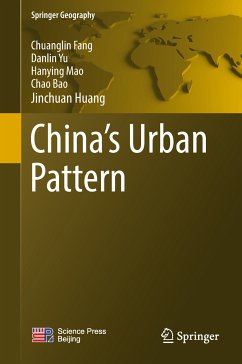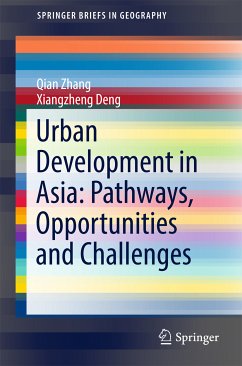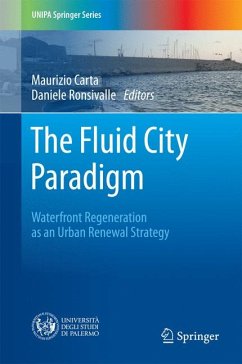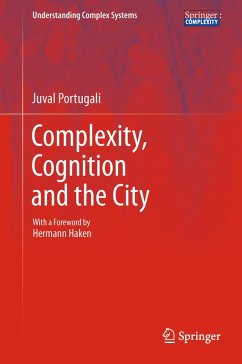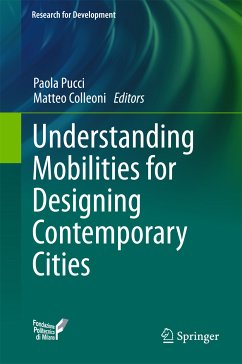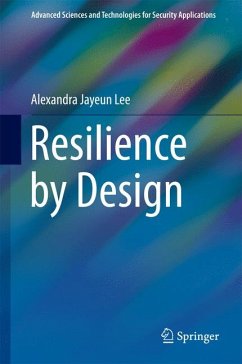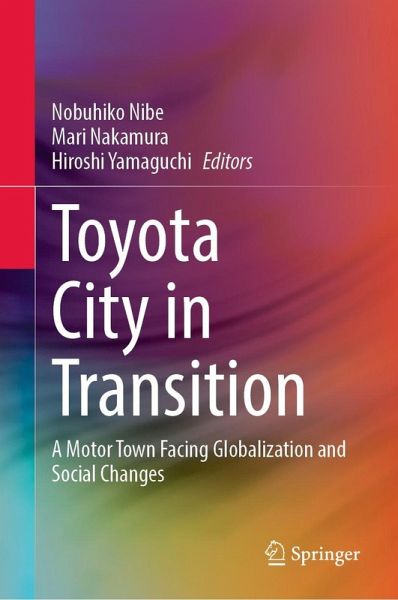
Toyota City in Transition (eBook, PDF)
A Motor Town Facing Globalization and Social Changes
Redaktion: Nibe, Nobuhiko; Yamaguchi, Hiroshi; Nakamura, Mari
Versandkostenfrei!
Sofort per Download lieferbar
104,95 €
inkl. MwSt.
Weitere Ausgaben:

PAYBACK Punkte
52 °P sammeln!
This informative monograph focuses on the city of Toyota, located in Aichi Prefecture, Japan. Aside from the fact that most Toyota passenger vehicles are produced there, generally little is known about its reality.Since the 1960s, the city has continuously attracted numerous jobseekers from distant rural areas. Owing to years of stable employment and settlement within local communities, once-new workers gradually build strong ties with their neighbours and actively participate in residential activities. This pattern of settlement provides a unique example of long-prosperous industrial cities, ...
This informative monograph focuses on the city of Toyota, located in Aichi Prefecture, Japan. Aside from the fact that most Toyota passenger vehicles are produced there, generally little is known about its reality.
Since the 1960s, the city has continuously attracted numerous jobseekers from distant rural areas. Owing to years of stable employment and settlement within local communities, once-new workers gradually build strong ties with their neighbours and actively participate in residential activities. This pattern of settlement provides a unique example of long-prosperous industrial cities, which deserves discussion against a backdrop of the present "de-industrializing" urban economies.
Unfortunately, this favourable situation is now changing, despite the regional economy's steady recovery from the 2008 financial crisis. Addressing this paradox is the main focus of the present book. The upgrading of the Toyota Production System and concomitant widening classdisparity are damaging local ties under severe pressure from global competition. Other suppressing factors are driven by sociological conditions, such as aging, declining marriage rates and birth rates. By comparing two sets of survey data, from 2009 and 2015, and performing fieldwork research in two communities that once were "new towns", the book seeks to provide an understanding of the present situation of this unusual industrial city. At the same time, a unique theoretical perspective is revealed that does not fit the mould of either the Chicago School or the new urban sociology.
Since the 1960s, the city has continuously attracted numerous jobseekers from distant rural areas. Owing to years of stable employment and settlement within local communities, once-new workers gradually build strong ties with their neighbours and actively participate in residential activities. This pattern of settlement provides a unique example of long-prosperous industrial cities, which deserves discussion against a backdrop of the present "de-industrializing" urban economies.
Unfortunately, this favourable situation is now changing, despite the regional economy's steady recovery from the 2008 financial crisis. Addressing this paradox is the main focus of the present book. The upgrading of the Toyota Production System and concomitant widening classdisparity are damaging local ties under severe pressure from global competition. Other suppressing factors are driven by sociological conditions, such as aging, declining marriage rates and birth rates. By comparing two sets of survey data, from 2009 and 2015, and performing fieldwork research in two communities that once were "new towns", the book seeks to provide an understanding of the present situation of this unusual industrial city. At the same time, a unique theoretical perspective is revealed that does not fit the mould of either the Chicago School or the new urban sociology.
Dieser Download kann aus rechtlichen Gründen nur mit Rechnungsadresse in A, B, BG, CY, CZ, D, DK, EW, E, FIN, F, GR, HR, H, IRL, I, LT, L, LR, M, NL, PL, P, R, S, SLO, SK ausgeliefert werden.



